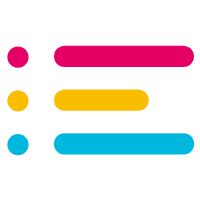-
PlatON Tips #19 | WebAssembly-Wasm
Welcome to PlatON Tips-Episode 19 We are going to talk about the WebAssembly-Wasm Preface …
-
PlatON Tips #18 | Governance mechanism
Welcome to PlatON Tips-Episode 18 We are going to talk about the Governance mechanism Gove…
-
PlatON Tips #17 | PlatON Consensus Solution-2
Welcome to PlatON Tips-Episode 17 We are going to talk about the PlatON Consensus Solution…
-
PlatON Tips #16 | PlatON Consensus Solution-1
Welcome to PlatON Tips-Episode 16 We are going to talk about the PlatON Consensus Solution…
-
PlatON Tips #15 | Economic model -3
Welcome to PlatON Tips-Episode 15 We are going to talk about the Economic model PPoS conse…
-
PlatON Tips #14 | Economic model -2
Welcome to PlatON Tips-Episode 14 We are going to talk about the Economic model Published …
-
PlatON Tips #13 | Economic model -1
Welcome to PlatON Tips-Episode 13 We are going to talk about the Economic model PlatONR…
-
PlatON Tips #12 | Scalable Privacy-Preserving Computing
Welcome to PlatON Tips-Episode 12 We are going to talk about the Scalable Privacy-Preservi…
-
PlatON Tips #11 | Alaya & ATP
Welcome to PlatON Tips-Episode 11 So on this video, we will talk about Alaya and ATP. What…
-
PlatON Tips #10 | Add PlatON to MetaMask’s network
Add PlatON to MetaMask’s network Welcome to PlatON Tips-Episode 10, So on this video, we g…
-
PlatON Tips #9 | Third-party wallets
Welcome to PlatON Tips-Episode 9 So on this video, we gonna talk about Third-party wallets…
-
PlatON Tips #8 | Intro to validator-2
Welcome to PlatON Tips-Episode 8 We are going to talk about the validator on this video wh…
-
PlatON Tips #7 | Intro to validator-1
Welcome to PlatON Tips-Episode 7 So on this video, we gonna talk about validator What is a…
-
PlatON Tips #6 | PlatScan(2)
Welcome to PlatON Tips-Episode 6 We are going to talk about the PlatScan on this video whi…
-
PlatON Tips #5 | PlatScan(1)
Welcome to PlatON Tips-Episode 5 So on this video, we gonna talk about PlatScan. PlatScan …





